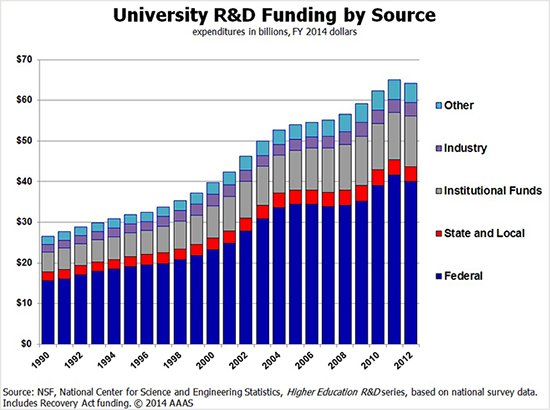Is Wall Street’s Hiring Of The Smartest Minds Hurting Our Society As A Whole?
I doubt it would surprise many if I said that Wall Street jobs boast some of the highest salaries in the US. How much though are they really making? Well according to a New York Comptroller study, in 2014 including bonuses, the average pay for the securities industry on Wall Street was around $400,000 while other private sector jobs in NYC averaged around $75,000. It is no wonder why every year some of the smartest minds in United States and even the world are attracted to this industry, when their talents could be put to much better use elsewhere. So I raise the question, is Wall Street’s intelligence brain drain, stifling innovation in other fields?

Recruitment into a field with little production value
The biggest problem I see with Wall Street and the securities industry in general is they provide little production benefit to our country as a whole. Sure they do have products that add some benefit, but for the most part they play the role of middlemen, not creating anything or producing anything beneficial. Instead, like leeches, they take their cuts for jobs that are only available because of heavy regulation on the industry as a whole by the government. For example, if I own a company and want to go public and issue an IPO, I am forced to do business with one of the Wall Street banks. If I decided to do it on my own I would be breaking the law.

Despite providing little value, the huge salaries attract the eyes of fledgling intellectuals because a job in research and development, although much more beneficial to our society, pays merely a fraction of the salary. Students notice this as well , which is why such a vast amount of people go into finance fields. When they have $100,000 loans they will take the level headed approach and train themselves for a job that pays well so they can live comfortably. The wages are so high because like anyone in the private sector, Wall Street firms want the smartest people and due to incredibly high salaries they end up getting them. However the salaries are high due to lack of competition and the mathematicians, economist and intellectuals they are recruiting are wasted on remedial jobs. They push money around, or sit in a room and predict the market, they aren’t used to their fullest abilities. They provide little benefit to society but reap the largest rewards.
Little innovation for such a big industry
The next problem we see with Wall Street is the lack of innovation to their business models until they are either forced to change by law, or by outside competition. Despite the industry globally being valued somewhere around 13 trillion dollars, the industry as a whole has no competition so there is little innovation on the grand scheme of things. In fact for the most part, innovation is frowned upon unless it can make the firms more money. There is no reason to shorten transfers to a day or to destroy clearing houses, because they all work together in a system that in mutually beneficial to all of them. If there wasn’t pressure by the government or by new fintech solutions, Wall Street banks and firms wouldn’t even attempt to change.

The brilliant minds that are brought in to work for the firms on Wall Street aren’t there for research and development to create a better system, but rather to uphold a flawed one that already exists. We in the US are still running on 1970s/80s banking technology and only now is there a push to make the system more efficient. While most other industries need to reinvent themselves every few years and keep up on new and emerging trends, Wall Street has had a cushy existence just doing just enough to get by, and when they mess up we are forced to bail them out. Why does one of the least innovative industries need the brightest and smartest minds when they aren’t even being used?
The loss of potential beneficial contributions in other industries
The consequence of Wall Street institutions recruiting the brightest minds is that we are losing out on potential innovation and advancement as a society elsewhere. If the smart minds entering Wall Street decided to pursue innovation and research in other fields we as a civilization would be better off for it. The problem is that research and development salaries run by the government or by universities pay little, despite much of the time, having the greatest impact. Government funding by the US to universities for research and development has stagnated in recent years and in a few even gone down. Instead of sending a trillion dollars to the military for money they didn’t even ask for, that one trillion dollars would be nearly 8x more than what the entire research grant contributions by the government are yearly. The government time after time is valuing sectors that provide little benefit to society over ones that have the potential to benefit everyone in the long term.

The point of this article is really just to make you think about the potential we are wasting as a society that could be better harnessed elsewhere. We are a capitalist society, so the highest salary jobs or always going to attract many of the smartest minds, but the government can take action to help combat this. The private sector alone can’t be the only one who is providing research and development because many times if they create something that won’t make them money, but is needed then they won’t pursue it. The government has to pay out more grant money to universities and scholarly institutions to help attract and retain some of the great minds they create.
-Calaber24p
